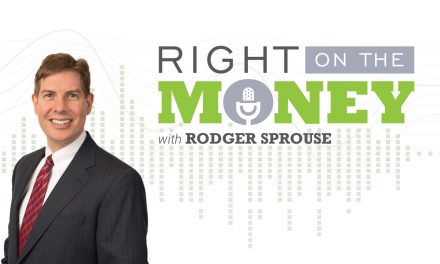Investing Appropriately, According to Your Risk Tolerance May Let You Sleep Better
A mismatch between a retirement plan and its owner can cause disastrous results in the near and long term. Risk-averse investors do well to sacrifice some rewards to achieve peace of mind. Diversified asset allocations can meet the different needs of individuals and couples in retirement. Watch the interview with investment adviser representative Rodger Sprouse.
Like a poor-fitting garment purchased for all the wrong reasons, a retirement portfolio that does not suit its owner will only cause ongoing discomfort. The resulting anxiety can incite nervous short-term decisions – such as panic-driven selling in a down market cycle – and can cause ripple effects that can jeopardize a long-deserved retirement. Since retirement is not a time for “do-overs,” retirees are well-served by recognizing their financial disposition, and seeking help to design a forward-thinking plan that considers both distributions and taxes.
Coming to grips with one’s risk tolerance is demonstrated in Shakespeare’s Hamlet by Polonius, who said, “To thine own self be true.” As relates to retirement planning, it simply means implementing asset allocations that forgo risky, high-potential gains in the name of consistency and stability. The benefits of such a strategy include the peace of mind needed to live a desired lifestyle, and the ability to sleep well at night – sometimes named the S-W-A-N effect.
Wives more than husbands have been cited to accurately – and more conservatively – assess an acceptable level of risk in a household. This often leads to asset allocations that provide income and security by employing a “singles vs. home runs” approach, to use a baseball analogy.
An allocation that can meet clients’ suitability standard is a fixed index annuity. An insurance product, annuities can produce tax-free income, account growth and protection from loss – even in down-market cycles – within an appropriate structure. Not all gains are captured, and dividends are excluded, however, annuities can complement the typically large presence of tax-deferred accounts such as IRAs and 401(k)s. Besides being a good fit for the risk-averse, annuities are appropriate for investors short on time until retirement.
Tax management strategies in retirement are often overlooked, and their absence can be another source of pain since taxes are often retirement’s largest expense. Rather than taking many types of distributions and willingly accepting Uncle Sam’s tax bill, investors can exercise some control over taxes – or their timing – by staggering or delaying income distributions from Roth IRAs or other sources.
While retirees can’t control markets or interest rates, for example, they have some control over their assets’ structure. Importantly, retirees can match asset allocations to their financial temperament in pursuit of a stress and panic-free retirement.
Syndicated financial columnist Steve Savant interviews Investment Adviser Representative Rodger Sprouse of Sprouse Financial on Retirement Expectations. Right on the Money is a weekly financial talk show for consumers, distributed as video press releases to 280 media outlets and social media networks nationwide.





